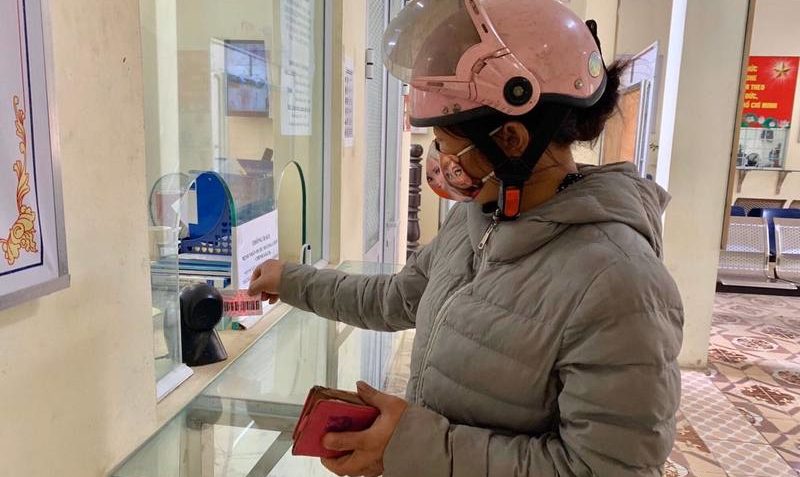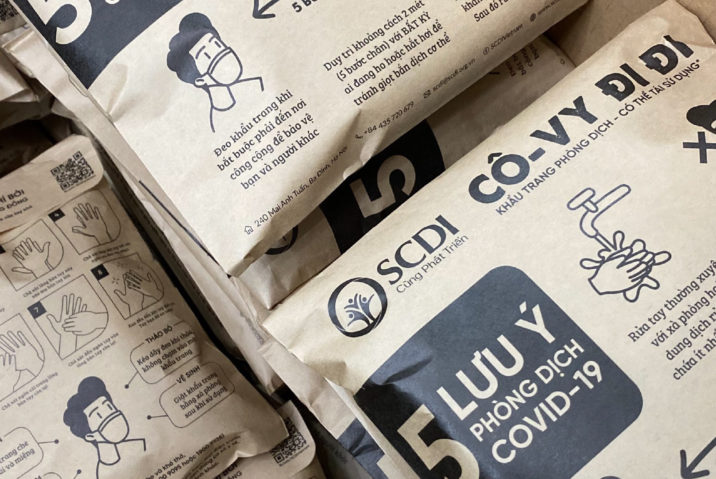Easing the struggles of people who use drugs during COVID-19
 © SCDI/2019
© SCDI/2019
As the COVID-19 pandemic unfolds we are working to ensure the needs of people who use drugs are not ignored, says Khuất Thị Hải Oanh, executive director at SCDI.
In Vietnam, no COVID-19-related deaths have been reported so far and there are only around 300 people who have been diagnosed with the virus. As I write, Hanoi has just come out of lockdown, but restrictions still remain in Ho Chi Minh City.
It is in these two cities that we are trialling a pilot scheme where police officers can refer people who use drugs for an assessment, which examines their health and socio-economic needs, rather than treating them as criminals. The pilot, which is a collaboration with the US’s Substance Abuse and Mental Health Service Agency (SAMHSA) and the Partnership to Inspire, Transform and Connect the HIV response (PITCH), is now in its third year and is working with around 200 police officers and 600 beneficiaries. As with all our work, we are adapting the scheme to meet the challenges of COVID-19, and this is leading to some unexpected benefits.
Changing the dynamic between police officers and people who use drugs
In Vietnam, police officers are the government officials who tend to have the most contact with people who use drugs. The pilot recognises this interaction for the opportunity that it is.
Under the scheme, when a police officer in either of these cities comes into contact with someone who uses drugs, they have the power to refer them to an SCDI-trained case manager instead of charging them for a crime.
The case manager will then establish that person’s support needs. This assessment provides entry to a range of services, including methadone treatment, HIV testing and treatment, vocational training, legal aid, peer support, mental health services, and hepatitis and tuberculosis screening.
Not only is the scheme helping people who use drugs to improve their health and their lives, it is also reducing the number of people being sent to compulsory detention centres. The centres can imprison someone for up to two years, but provide little to no supporting services. As a result, people generally suffer poor physical and mental health while detained, and tend to return to their lives, including using drugs, once released.
Unexpected effects
When COVID-19 began, we were concerned about what it would mean for the pilot. We responded quickly, using funds from our usual activities to provide facemasks and hand sanitisers for all those working on our programmes – including police officers, case managers and beneficiaries involved in this pilot.
That is having a very positive, if unexpected, effect. Police officers involved in our scheme really appreciate the protective equipment we have provided. They feel cared for. Although authorities are providing facemasks to police officers, their supply is insufficient. Police officers’ biggest concern right now is being protected from COVID-19 while they work, and by meeting this need we have boosted their commitment to the project in return.
Unfortunately there have been negative impacts too. Before COVID-19 began, there were plans to extend the pilot in Hanoi but this has now been delayed. We are now working to ensure plans are not postponed for long.
Everyday struggles
People who use drugs are facing more struggles due to COVID-19. Many people have lost their job, which means they are unable to afford methadone, which unfortunately is not provided for free in Vietnam. We are advocating for methadone fees to be waived during this time, and the government has issued an instruction to provinces to this effect.

Some people who are unable to work are going without food. This is a difficult situation for anyone, but for people living with HIV it is even worse. Antiretroviral drugs (ARVs) must be taken with food so a lack of it means treatment may fail. In March, SCDI began raising awareness about this. People have donated money, which we have used to provide food packages for people who use drugs who are also living with HIV. The food packages are getting more people who use drugs interested in our work, which in turn is helping to increase awareness of the pilot.
Using influence
Vietnam has been conducting contact tracing among people who test positive for COVID-19. At the beginning of the outbreak, we heard that some people’s HIV status had been disclosed without their consent during this process. We intervened immediately, and there are now government guidelines to ensure this doesn’t happen again.
We have also been advising the Ministry of Health on the best way to enable access to ARVs and methadone during lockdown. In addition we have been advocating against people being sent to compulsory detention centres during the pandemic where social distancing will be difficult, and for those being held to be released.
By responding to these needs and realities we are finding our way through the COVID-19 crisis, and easing some of the struggles associated with it.
The Partnership to Inspire, Transform and Connect the HIV response (PITCH) is a joint partnership between Frontline AIDS, Aidsfonds and the Dutch Ministry of Foreign Affairs.
Tags
COVID-19Harm reductionPeople who use drugsPITCHVietnam

